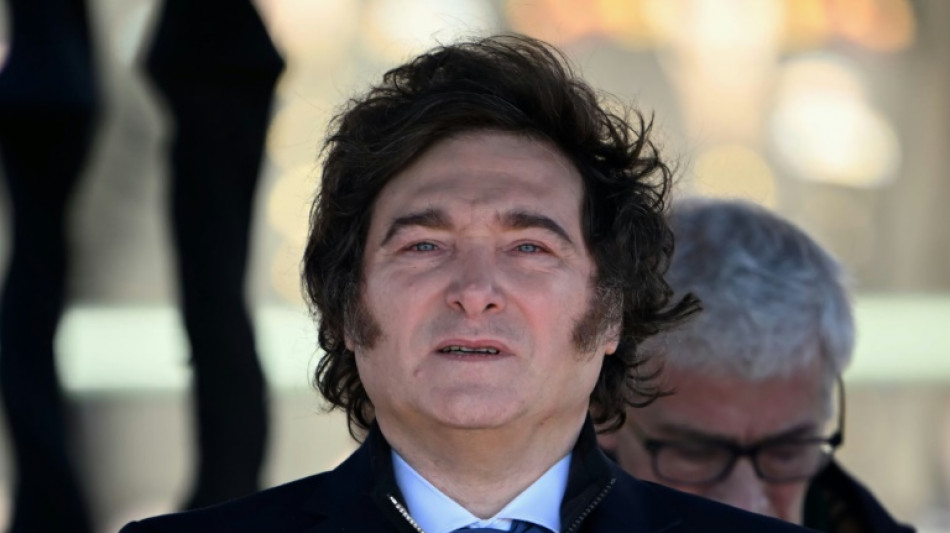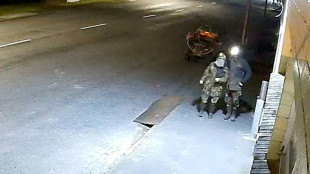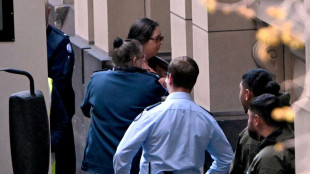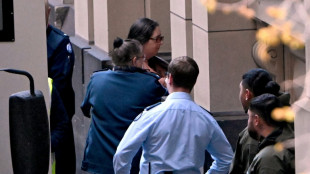

Milei steps up attacks on media as election nears
Argentine President Javier Milei has stepped up his attacks on journalists with defamation suits and insults that analysts say are designed to bolster his image as an anti-"woke" warrior ahead of October elections.
The chainsaw-wielding, budget-slashing, libertarian president has recently taken to describing critical reporters as "human excrement," "trash," "baboons" and "prostitutes to politicians."
A new slogan, "We don't hate journalists enough," has its own hashtag: #NLOSALP, which Milei adds to online posts.
Reporters Without Borders (RSF) has moved Argentina down 47 spots on its World Press Freedom Index from 2023, when Milei took office. It now sits at 87 out of 180 countries.
The daily La Nacion counted 410 attacks by Milei on the press during his first year in office in speeches, interviews and on social media.
Sixty journalists were assailed by name.
"His mistreatment of journalists... has worsened in recent weeks as the government loses control of the narrative" and editorials express doubts about Milei's economic reforms, Hugo Alconada Mon, an investigative journalist at La Nacion, told AFP.
Others say the president's anti-media stance is an essential part of his battle against what he calls "woke ideology."
"It's a central theme since the government claims to be engaged in a 'cultural battle,' and since the narrative, by definition... goes through the media," said Gustavo Marangoni, a political analyst with the consultancy M&R Asociados.
It is also common for populists, Marangoni added, to create "an enemy" for their supporters to blame for "a conspiracy... to prevent the success of libertarian governance."
Since he took office in December 2023, Milei has made good on his promise to lower inflation.
But it has come at a price of cutting thousands of jobs and slashing social spending, while concerns remain over Argentina's ability to shore up foreign reserves and attract investment.
- 'Journalist scum' -
Milei has filed eight lawsuits against journalists this year alone, two of which have been dismissed.
At least one reporter is under police protection after receiving online threats and has filed a countersuit against Milei for intimidation.
"Insults, defamation and threats from Javier Milei's administration toward journalists and media critical of his regime have become commonplace since he took office," according to RSF.
Milei insists the media has only itself to blame.
"All these journalist scum called me incestuous, a zoophile, homophobic. They called me a Nazi," he complained recently to a friendly streaming channel, Neura.
"Then, when they face a backlash, they start whining."
Shila Vilker of political consulting firm Trespuntozero said Milei's targeting of the media serves to maintain his image of a disruptor, to show "that he remains the same 'outsider' who came to power to fight the political-media 'caste'."
This was particularly crucial to drum up support in the months leading up to October parliamentary elections, with Milei seeking to expand his party's representation.
Vilker said that due to Milei's rhetoric, "the center is neutralized, polarization increases, and the message becomes clear: there is no room for the lukewarm" in the country with deep political divisions.
Backed by a "digital army that amplifies and multiplies the harassment," it also has the effect of intimidating potential critics into silence, she added.
X.al-Nasser--BT



